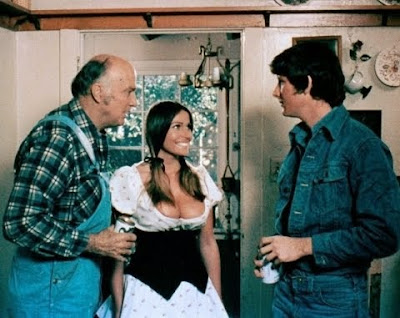Me and Orson Welles
One of my favorite liner notes is for Miles Davis' The (Re)Birth of the Cool, written by trumpeter Mike Zwerin, who was asked by the man himself to play some live dates. Zwerin describes the over the moon excitement he had that first night as he drove home to Queens, knowing even then he was to be a part of something historic. As it turned out, Zwerin did not play on the recording sessions for the celebrated album, and he wistfully states that there is an asterisk next to his name in the annals of jazz history, just as there is one by Roger Marris' name in baseball lore.
The character named Richard Samuels in 2008's ME AND ORSON WELLES would assume a similar spot in history. Arthur Anderson, the real life teenager on whom Samuels is based, was part of the cast of Orson Welles' stage production of Julius Caesar in the inaugural days of the Mercury Theater. Anderson would go on to have success in radio, including "Mercury Theatre on the Air." Samuels' lot at the conclusion of this movie is a bit sadder and certainly more dramatic than what history speaks of Anderson's.
It's 1937 and Samuels (Zac Efron) one day finds himself, quite by accident, among the diverse theater troupe of the fledgling Mercury as it mounts the first ever Broadway production of a Shakespearian play. Welles flamboyantly holds court as director and paramour to at least 2 women in the company, despite having a pregnant wife back home. As played with great attention and mimicry by Christian Mackay, the legendary auteur is given a colorful interpretation: quick, sardonic wit and endless eccentricity and even nuance. What other theater maven traveled around NYC in an ambulance? The performance is more than reason enough to see this movie.
Backstage intrigue gels when Welles opens up to the boy about his consuming anxieties that the play will flop ("Everything's gone too well!") and when Richard falls hard for production assistant Sonja Jones (Claire Danes, really looking the part), a fast talking Girl Friday who educates (more than once) the naive lad on the cold world of show business. Icy cold, as a weary Samuels will learn during the film's climax.
Director Richard Linklater, who has fashioned some of my favorite films, is as far from the slacker worlds of his earlier pictures as is possible with ME AND ORSON WELLES. The evocation of theater life is some of the most tangible I've seen recently (comparisons with THE DRESSER are well earned). The long hours. The attitudes of the actors. The familial bonds forged. The technician who argues for more credit (Welles: "This is MY creation!"). A young man's desperate desire to be part of the creative world. There is also a glimpse at Welles' participation in a radio show at CBS's studios that is as vivid as anything I've seen in a nostalgia piece. It's as visually and texturally astute as the theater scenes. I was really impressed with Linklater and his team's work in this movie.
Even though it isn't his screenplay (it was penned by Holly and Vince Palmo), I couldn't help but think the director was really portraying his own feelings when a young woman, a budding author who Richard meets at the opening and closing of ME AND ORSON WELLES and who states, after the young man questions her short story - "Does everything have to have a plot?" It is a nice summary of Linklater's career, his greatest successes. Perhaps Welles', too.



Comments